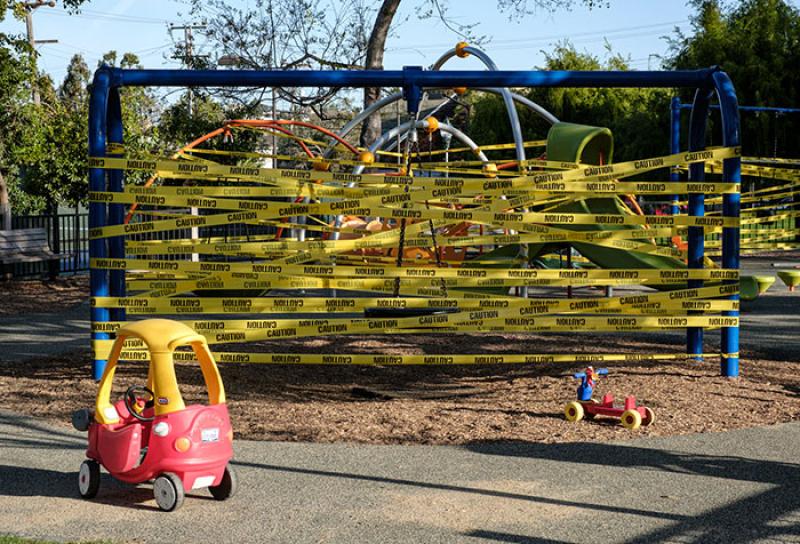
Expert Q&A: COVID-19's impact on Green Space
The College of Applied Health Sciences has experts in many areas that have been affected by the COVID-19 outbreak. Periodically we will ask these experts about how their areas of expertise have been impacted and what we can expect in a post-COVID-19 world. Today, we ask RST professor Bill Stewart about parks and green space.
Q: What is the biggest impact of shutting down parks during this outbreak?
A: For many, our mental and physical health has taken a hit. Parks are places that encourage us to exercise, engage with others, and feel relaxed in a natural setting. I think Weight Watchers and therapists will have lots of new clients when we come out of this!
Q: Could this affect green space funding, whether local, state or federal, going forward?
A: The consequences of COVID-19 will likely effect the distribution of green space more than the amount of funding for green space. There are many under-served populations where green space is scarce, particularly in urban areas. We are likely to emerge from this crisis with a heightened sensitivity to questions of environmental justice related to park and green space for residents of marginalized communities.
Q: Does COVID-19 affect how future green space models are laid out, in terms of allowing for social distancing?
A: A key factor is related to density of visitors at the park. Current models for urban parks focus on distance and walkability to parks from home, they do not account for density of use on pathways once in the park. There will be renewed interests from park and green space agencies to work closely with local health departments to produce guidelines for operations and designs.
Q: Does COVID-19 actually increase the appeal and need for green space because of limited exercise options?
A: Yes, post-COVID America will likely value our green spaces more than ever. Along with needing places to exercise, our sheltering-in-place practices have left us missing opportunities to be outdoors in nature, as well as seeing others as part of a community of people larger than ourselves.
Q: Should parks be open, or is there a danger because of community spread?
A: There are dangers to opening up parks too soon, particularly playgrounds and activity centers that bring people together. Park venues that host community events, festivals, sport competitions, and concerts should be some of the last places to be opening in a post-COVID roll-out. With elderly populations being so vulnerable, recreational programs and facilities that cater to seniors will need to be especially cautious about re-opening. Infectious disease outbreaks should be treated like a natural hazard in terms of the risk posed to human lives.
Q: Waiving fees in parks has increased visitation. Is there a lesson to be learned there?
A: Most municipal and county parks do not have entrance fees and are freely open to the public. However the policy of the National Park Service is being handled on a park-by-park basis working with the CDC for advice. For example, Indiana Dunes National Park, which is within an hour drive of Chicago’s loop, has closed all its buildings, restrooms and some park areas, however its 50 miles of hiking trails are open and provide safe space for exercise while social distancing—and are free.
Q: Some parks that have stayed open have cut services, to their detriment. Will that increase employment for parks going forward?
A: The short term will leave parks with a decrease in staff with severe cutbacks to hiring seasonal help—largely teens and young adults from nearby communities will be left without summer jobs. These seasonal positions are excellent opportunities to learn leadership skills, professional development, and at the same time provide needed services for community residents during summer months. In the long term, employment will increase due to an invigorated public consciousness about an enhanced need for green space and its newly appreciated connections to human mental, physical, social, and spiritual health.
Q: Will park staff now be educated in pandemic response, and do you think they should have been already trained?
A: Most park staff already have training in various kinds of emergency response situations, however the COVID crisis will likely deepen the commitment for such training, improve the consistency of training across all personnel, and lead to reviewing health and emergency response protocol. In addition, working relationships between local health departments and park agencies will become more common and likely affect daily routines and programming.
